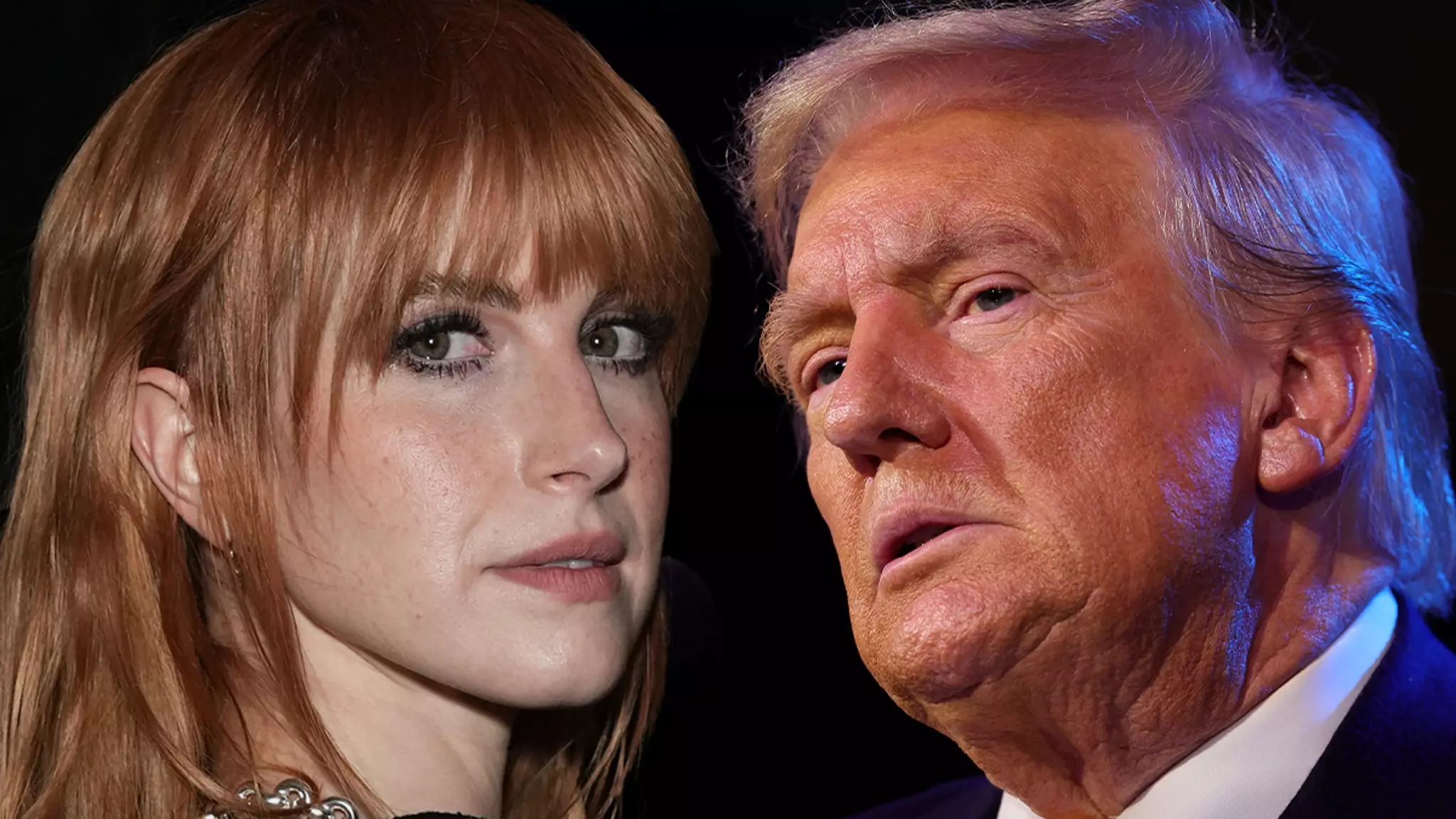In a powerful moment during her performance at the iHeartRadio Music Festival in Las Vegas, Hayley Williams, the lead vocalist of Paramore, took a bold stance against a potential second term for former President Donald Trump. Utilizing her platform, Williams addressed the audience directly, emphasizing the urgency of voting to prevent what she characterized as a looming dictatorship under Trump’s leadership. This direct engagement highlights a growing trend among artists who wield their influence to encourage political participation, especially in contentious times.
Williams specifically referenced Project 2025, a strategic initiative associated with Trump and the Heritage Foundation, describing it as a framework designed to suppress marginalized groups, including women, the economically disadvantaged, and members of the LGBTQ+ community. By framing this policy as detrimental to democracy, Williams positioned herself not just as an entertainer, but as a conscientious citizen motivated to protect the rights and freedoms of all Americans. This point reverberates through the cultural discourse, emphasizing the perceived threats to democratic values posed by authoritarian leadership.
Divisive Reactions and the Role of Influencers
The aftermath of Williams’ remarks showcased the polarized political landscape in the United States. Reactions poured in from fans and critics alike, illustrating how celebrity commentary continues to spark division. Supporters celebrated her outspokenness as a necessary critique of Trump, while detractors accused her of merely echoing partisan lines without substantive analysis. This division reflects the broader challenge faced by public figures who aim to engage in political discussions—the risk of alienating segments of their fan base while striving to promote civic engagement.
Additionally, Williams’ criticisms seem to be informed by personal connections within the music industry. Her public opposition to Trump may also correlate with his recent derogatory comments about Taylor Swift, a friend and fellow artist. The intertwining of personal relationships and political stances reveals how deeply personal sentiments can influence public advocacy. Such dynamics raise questions about the motivations behind celebrity activism: is it purely ideological, or does it stem from a communal ethos fostered among artists?
In this current era, the engagement of celebrities in political discourse is a double-edged sword. While their visibility can amplify important issues and motivate voters, it can also dilute complex topics into sound bites that may lack depth. Artists like Williams are now tasked with navigating this challenging terrain, balancing their roles as entertainers with the responsibility of informed advocacy. As the 2024 elections approach, Williams’ passionate message serves as a reminder of the significant impact public figures can wield—both positively and negatively—in shaping political consciousness among their audience.
In sum, Hayley Williams’ remarks during a concert not only encapsulate her advocacy against Trump but also situate her within a growing movement of artists using art as activism. Ultimately, the question remains: how effective can a celebrity’s call to action truly be in an increasingly polarized world?

